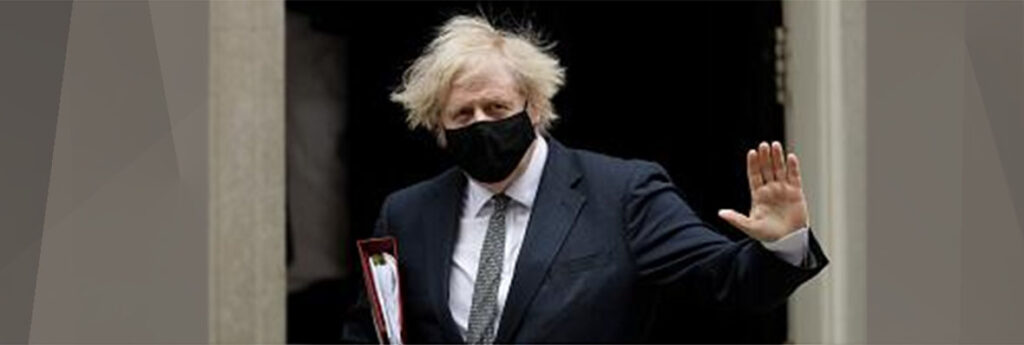British Prime Minister Boris Johnson says the UK government will test out a “vaccine passport” system as a way for people to offer proof they have protection from COVID-19 and ultimately as a tool to help travel and large events return safely.
Johnson said on Monday that it’s too soon to decide, however, whether UK residents will be able to have summer trips abroad, despite Britain’s slow but steady march out of a three-month lockdown, which will see businesses from bars to barbers to bookstores to restaurant patios allowed to reopen next week.
A ban on overnight stays away from home in England will also be lifted April 12, and outdoor venues such as zoos can operate again.
Scotland, Wales and Northern Ireland are following similar but slightly different paths out of lockdown.
Britain has recorded almost 127,000 coronavirus deaths, the highest toll in Europe, but infections and deaths both have fallen sharply during the current lockdown and since the start of a vaccination campaign that has given a first dose to more than 31 million people, or six in 10 adults.
The government aims to give all adults at least one shot of vaccine by July and hopes that a combination of vaccination and mass testing will allow indoor socializing and large-scale events to return.
Britons are currently banned by law from going on holiday abroad and the government said it won’t lift the travel ban before May 17 – maybe later.
“The government hopes people will be able to travel to and from the UK to take a summer holiday this year, but it is still too soon to know what is possible,” it said in an official update.
Once travel resumes, Britain will rank countries on a traffic-light system as green, yellow or red based on their level of vaccinations, infections and worrying new virus variants. People arriving from “green” countries will have to be tested but won’t face quarantine.
The government also is testing a system of “COVID-status certification” — often dubbed “vaccine passports” — that would allow people seeking to travel or attend events to show they either have received a coronavirus vaccine, tested negative for the virus, or recently had COVID-19 and therefore have some immunity.
Despite some public and political opposition, the government said vaccine passports were all but unavoidable, since many countries were certain to demand proof of COVID-19 status for entry. And it said barring British businesses from asking customers for similar proof would be “an unjustified intrusion on how businesses choose to make their premises safe.”
Johnson acknowledged that vaccine passports raised “complicated ethical and practical issues” and stressed their introduction wasn’t imminent.
“We’re some way off finalizing any plans for COVID-certification in the UK,” he said.

